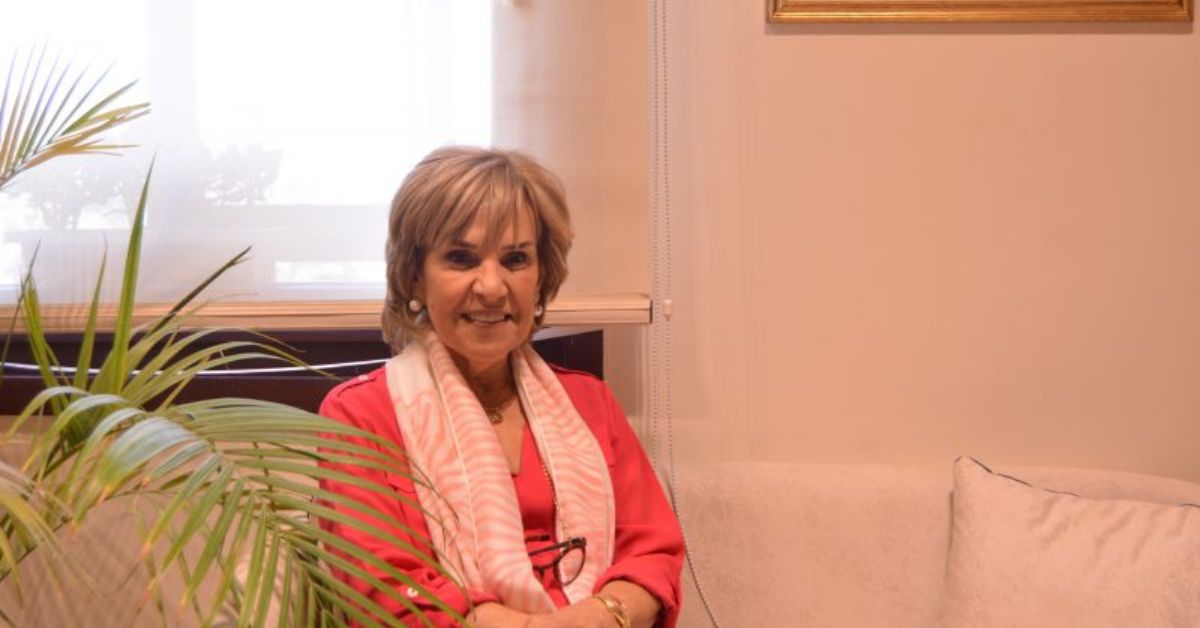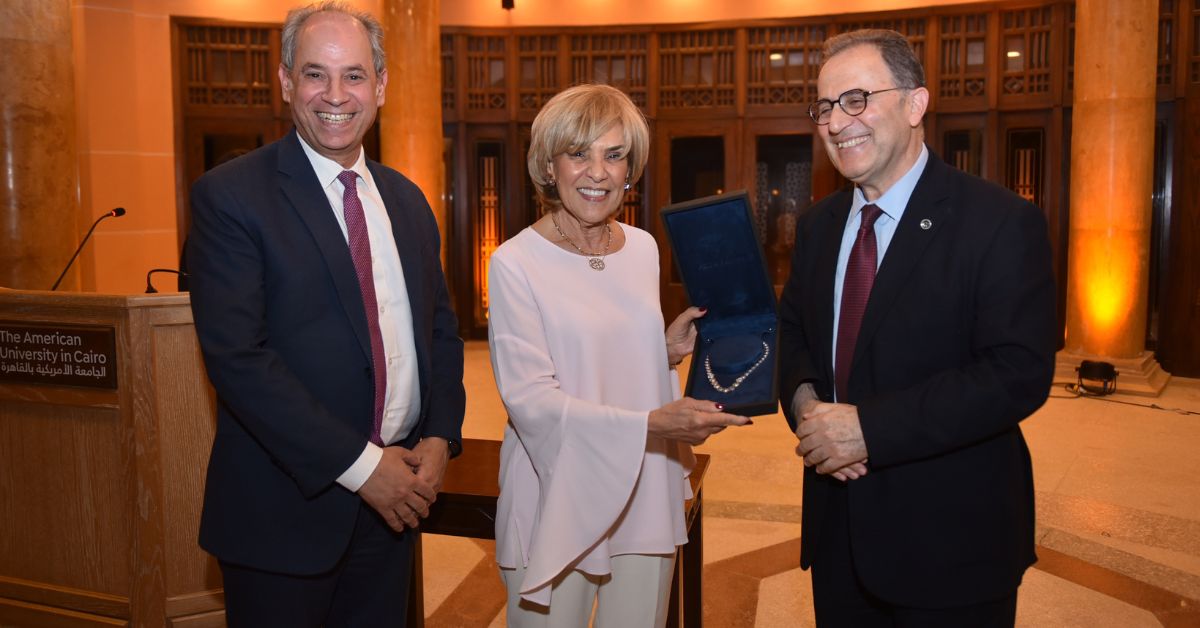DUBAI — As the world prepares for International Women’s Day, it’s time to explore the trends and insights shaping the landscape of education, with a special emphasis on women’s remarkable journeys in this field.
Aziza Ellozy’s journey into education is both unique and inspiring. With a BS and MS from AUC and a PhD in Materials Engineering from the United States, her career initially took a different path, landing her a position as an engineer at IBM. However, her desire for professional fulfillment and flexibility as a young mother drove her to pursue a career in academia, where she discovered her passion for teaching and educational reform.
Ellozy found herself immersed in the changing landscape of higher education, particularly in STEM disciplines, after enrolling at Fordham University in New York City. Her interest in innovative pedagogies and the use of technology in education paved the way for her transformative journey. This culminated in her pivotal role as the founding director of The American University in Cairo’s Center for Learning and Teaching (CLT).
Despite facing challenges in advocating for change, her unwavering commitment to cultivating an environment of innovation and collaboration propelled CLT to become a beacon of excellence in higher education.
In this interview with TRENDS, Ellozy draws on her extensive experience to highlight the invaluable role of Arab women in shaping future generations’ educational journeys.
Excerpts:
Q: Can you share with us your journey in the education sector, particularly how you entered the field and what motivated you to pursue a career in education?
A: In reality, my career did not start as an educator. After obtaining a BS and MS at AUC and a PhD in Materials Engineering in the US, my husband and I decided to remain in the US, and I accepted a job offer as an engineer at IBM. After a couple of years at IBM, I realized that corporate life in the US was not for me.
Although I found the work exciting and the environment stimulating, it did not provide the flexibility I needed as a young mother. My professional life took a very different turn. I joined Fordham University in NYC in the Department of Natural Sciences, where I got tenured and remained until my return to Egypt in 2001. During that time, I discovered my passion for teaching and education in general.
Research suggests that women in the education sector can create a safer, more positive learning environment… Arab women can play a uniquely important role…
Aziza Ellozy of The American University in Cairo
During my last few years in the US, I became involved in the changing landscape of higher education, particularly in the reform movement that swept the STEM (Science, Technology, Engineering, Mathematics) disciplines. I was captivated by the extensive research on how people learn and how some pedagogies are more effective than others. With the introduction of technology in the teaching and learning process, the approach to education transformed completely. This sparked my new passion.
When we decided to return to Egypt, I had been contemplating a career change that would allow me to use my experience in educational reform and instructional technology to develop and implement new teaching approaches. So, when I was hired at AUC in 2002 to establish a Center for Learning and Teaching, I had the opportunity to put my passion into practice.
Q: What inspired you to establish the Center for Learning and Teaching (CLT) at The American University in Cairo (AUC)?
A: The initiative to establish a Center for Learning and Teaching at AUC did not originate from me. It came as a strong recommendation from visiting consultants. The incentive was the recognition of the rapidly changing teaching and learning landscape in the US and elsewhere, where there was a need to shift from emphasizing the transmission of information to building knowledge and skills such as critical thinking, creativity, and problem-solving, and to adopt experiential and active learning pedagogies.
Therefore, the need for faculty professional development was a critical factor, and AUC, like other US institutions of higher education, responded by establishing a center that would build sustainable professional development programs for faculty, nurture innovation, and support the effective integration of technology in the learning and teaching process across the university. I had the privilege of being hired to make this happen.
Q: As the founding director of CLT, what were some of the challenges you encountered in setting up and running the center as a woman, particularly in the context of the educational landscape in Egypt and the wider Arab world?
A: My major challenge was not my gender. Rather, it was gaining the acceptance of AUC faculty as I advocated for change and innovation. The most common characteristic of universities around the world was (and still is) the reliance on lectures, a teaching strategy that promotes passive learning.
So, my key challenge as the founding director was to find ways to engage and encourage faculty across disciplines to adopt active learning and other student-centered, evidence-based, successful teaching practices. Focusing first on the needs of our faculty and building a strong team, I aimed to establish a center that supports faculty in the areas of pedagogy, assessment, and technology-enhanced learning, with an approach that integrates these three areas. We also stated clearly that CLT would not be evaluating individuals for the purpose of promotion, tenure, renewal of contract, or salary. Our approach would be formative and not evaluative.
We need to prepare students for living and working in a world that is increasingly complex… using technologies that have not yet been invented…
Aziza Ellozy of The American University in Cairo
Q: How have you observed Arab women playing a leading role in the education sector, both in academia and in leadership roles, and what unique contributions do they bring to the field?
A: Research suggests that women in the education sector can create a safer, more positive learning environment for female students, especially in STEM fields. In that respect, I believe that Arab women can play a uniquely important role in young Arab women’s higher education, especially in universities where the sexes are segregated. They can educate, mentor, and be positive role models who can help female students build self-esteem and perform better academically.
Q: In your experience, what are some of the strategies you’ve employed to overcome obstacles and achieve success as a woman in the education sector, especially in a leadership position?
A: First, I strongly believed in AUC’s educational goals and in CLT’s mandate. An important goal for me as a leader was to build a professionally strong, agile team with a culture of service and collaboration, thus ensuring the continued fulfillment of the mission and vision of the center if I took up another position. In 2011, when two US external reviewers were invited to assess the center’s activities, they called it “the ‘jewel in the crown’ of the campus” and said that “it offers innovative best practices to which teaching centers in the US can look for inspiration.” Today, under its excellent new leadership, the CLT is thriving and continues to be a regional and international leader in the field.

Q: How do you envision the future of education, particularly in the Arab world, and what role do you see women playing in shaping this future?
A: The message from educational reformers is loud and clear: our responsibilities in educating for the 21st century are dramatically different than they were in the past. We need to prepare students for living and working in a world that is increasingly complex. Quoting Karl Fisch, a well-known educator and teacher, we need to prepare a workforce “for jobs that don’t yet exist, using technologies that have not yet been invented, in order to solve problems that we don’t know are problems yet.”
For this, we need to reform our educational systems to allow educators the flexibility to experiment and innovate while continuously developing professionally and receiving formative assessment feedback. Hence, support systems for faculty such as Centers for Learning and Teaching (CLTs) at every university are indispensable.
Of course, I strongly believe that women have always played and will continue to play an important role in any educational initiative, whether in important leadership positions or as educators in the field. Gone are the days when women’s roles were viewed as secondary in almost any field.
Q: What advice would you offer to aspiring educators, especially women, who aspire to make a significant impact in the field of education and contribute to transformative learning and teaching practices?
A: I would advise them to encourage learners to think freely and independently, and to help them develop intellectual rigor. Ideally, we should prepare them for lifelong learning and for tackling the complexities of our modern world while appreciating our human heritage.

